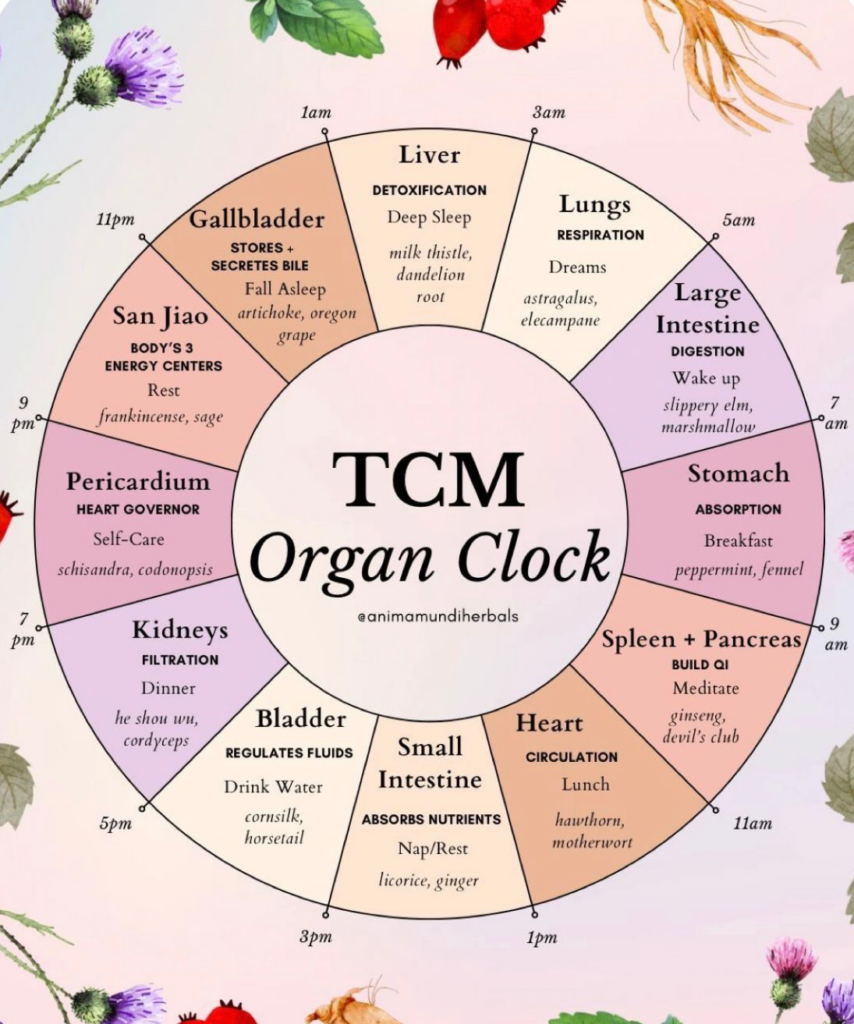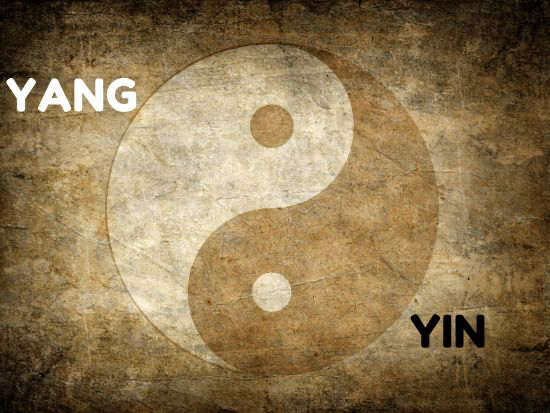What is Traditional Chinese Medicine?
Traditional Chinese Medicine is a complex framework of ancient wisdom which honors and balances the mind, body, and spirit. It has been credited with increasing vitality and helping to minimize health problems for literally thousands of years.
While studying this discipline is complicated, there are several simple health tips you can start today to better support your health!
10 Health Tips based on using TCM principles
1. Go to bed earlier

While prioritizing rest and aiming for a replenishing eight hours of sleep are important, your actual bedtime also plays a role in getting health benefits from your sleep.
According to TCM’s 24-hour circadian clock, the optimal time to go to bed is around 10 to 10:30 PM. Sleep is essential for the body’s rest and recovery, and in Chinese medicine, being asleep between 11 PM and 3 AM supports the liver and gallbladder functions. Additionally, avoiding electronic devices at least an hour before bedtime helps prevent the blue light from interfering with deep, restful sleep.
2. Cover up with a scarf
According to TCM, the nape of the neck is particularly vulnerable to elements such as wind and cold, which may make one more susceptible to pathogens.
To support a healthy immune system, TCM says you should protect your neck with a cozy scarf before stepping outside.
If you’re traveling on an airplane or expect to be in environments with a steady flow of air conditioning (office spaces, trains, etc.), pack a light scarf to have on hand.
3. Keep Your Feet Warm
Keeping your feet warm goes beyond just comfort. In TCM, the feet are home to several important acupuncture points connected to meridians that help maintain balance within the body. Cold temperatures can disrupt the flow through these meridians, so keeping your feet warm is especially beneficial, particularly for those who menstruate. While this may be less critical during warmer months, TCM theory emphasizes the importance of warm feet to support overall internal health.
4. Emphasize Warm, Cooked Foods
Maintaining warmth inside the body is just as crucial as staying warm externally. In Chinese medicine, the temperature and nature of the food you consume play a key role in health. Cold and raw foods, such as salads, raw vegetables, smoothies, and ice cream, can be harder to digest for some people. Though cold foods may not affect everyone, those who experience bloating or digestive discomfort are advised by TCM to opt for lightly cooked or steamed vegetables and warm meals. Additionally, TCM practitioners suggest drinking room temperature water instead of cold beverages, particularly in winter, when the body needs more energy to process cold foods.
5. Mindful Movement
Move Daily to Keep Qi Flowing
Gentle exercises like walking, stretching, tai chi, qigong or yoga promote the smooth flow of Qi (energy) throughout your body. Regular movement helps improve mood, circulation, and overall wellbeing.
In Chinese medicine, it is believed that stagnation in the body leads to imbalance and pain. To maintain health and harmony, regular movement is essential.
6. TCM Dietary Therapy
In Traditional Chinese Medicine (TCM), having balanced diet is essential to good health and can help balance the body’s internal energy (Qi), support organ health, and prevent illness.
TCM dietary therapy emphasizes eating seasonally, understanding the properties of different foods (warming, cooling, etc.), and addressing individual health conditions through nutrition.
7. Apply Heat, Not Ice

Ice constricts and freezes, much like the way our muscles tense up in cold weather. In contrast, heat promotes relaxation and circulation, making it a better option for relieving muscle aches and pains. According to TCM, applying heat can help facilitate the body’s natural healing process by improving blood flow. While ice may numb pain temporarily, its muscle-constricting effect can hinder recovery. TCM suggests using ice primarily for acute injuries with swelling and redness. Always consult your healthcare provider to determine the best approach for your condition.
8. Drink Tea
Herbology, a core branch of Traditional Chinese Medicine, uses herbal formulas to support health and well-being, often in the form of teas. While acupuncture communicates directly with the body’s energy systems, herbs act as building blocks that enhance the body’s ability to create change. Each herb has unique properties and can be used alone or in combination to target specific needs. For instance, ginger and peppermint are known to aid digestion, while cinnamon supports healthy blood circulation.
In TCM, teas are classified as either “warming” or “cooling,” based on their essence rather than their temperature. Green and white teas are generally cooling, making them ideal for spring and summer, while black and oolong teas are warming, better suited for fall and winter. Choosing teas that align with the seasons can help restore internal balance and promote overall health.
9. Meditation for Mental Clarity
TCM emphasizes the balance between body and mind.
Meditation helps calm the mind, reduce stress, and promote the smooth flow of Qi. Spend 10-15 minutes a day practicing deep breathing or mindfulness meditation to maintain mental and emotional balance.
10. Acupuncture/Acupressure
The practice of Acupuncture and acupressure treats the body, mind, and spirit to promote balance within the system. Acupuncture uses sterile, single-use needles to stimulate specific points on the body and create change while acupressure uses gentle pressure to stimulate those same points on the body.
This form of treatment communicates with the body through neurotransmitters, fascia, and hormones, to support systemic changes that allow the body to self-heal.
Traditionally, acupuncture was practiced mainly as a preventative medicine. Today, regular acupuncture sessions are still encouraged to maintain health and prevent sickness, but many seek out treatment to assist the body in healing particular conditions.
Final Thoughts
These 10 fundamental principles have stood the test of time, effectively supporting both physical and mental health for centuries.
While they may seem simple, these tips target vital needs and offer essential support for our unique and intricate systems. From mindful movement to nutritious eating and herbal remedies, each tip is crafted to enhance the smooth flow of qi—your vital energy.
Begin with one principle or gradually integrate them into your daily routine.
As always, consult your healthcare provider before making any dietary or lifestyle changes.

